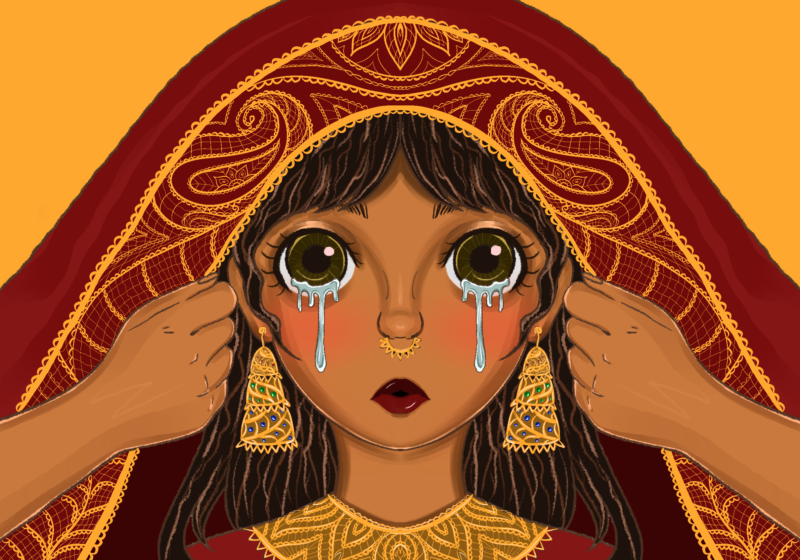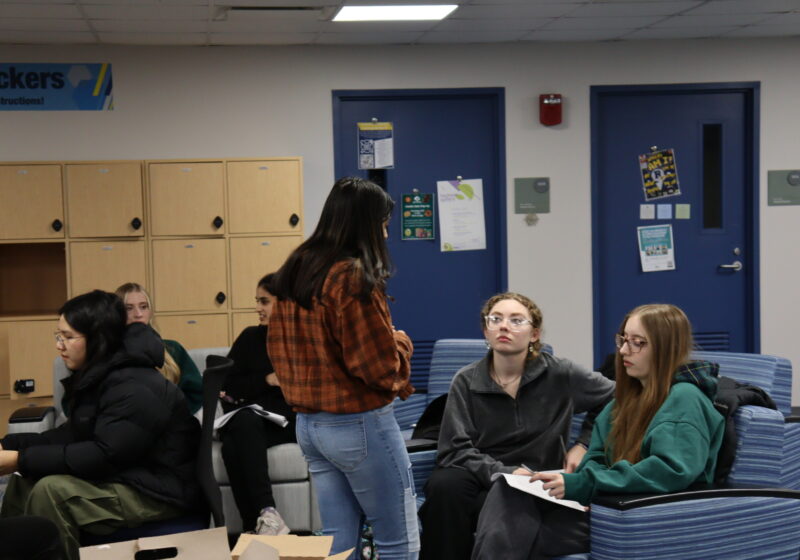My grandmother recently found out that I have had a boyfriend before. She was shocked. I’m 19 years old — of course I’ve had a boyfriend. In fact, I’ve had a few (but she doesn’t need to know that). At first, I reacted with shame. I really wish my grandmother didn’t know that I’ve ever had a partner. I still wanted to be that sweet little girl in her eyes. But then I began to think back to the summer of 2011.
I spent that summer in Bangladesh. I was eight years old and staying with my father’s family. My family in Bangladesh is well-off. My grandfather was a Member of Parliament coming from a long line of politicians. My grandmother came from a very wealthy family. Neither of them ever knew poverty. Due to their wealth, they were able to hire help. We had three boys who were hired to help prior to 2011. Everyone mistook them for my brothers whenever I would show them pictures, and I was too ashamed to admit that they were not. There is something incredibly embarrassing about acknowledging that your family hired help.
However, this is common in Bangladesh. Most families who have the ability to do so hire young girls and boys from the villages. Usually these children come from extremely poor families, and their families do not want to subject them to the harsh conditions of the fields or the garment factories in the cities. So, they are instead sent away to well-off families in Dhaka who will give them a place to stay and pay them to help around the house. Often these families can be incredibly cruel to these children — they are not allowed to eat until the family eats and are frequently subject to corporal punishment if they misbehave. I’m incredibly grateful to my family for never hitting those children even though I’m incredibly ashamed that they partook in such a terrible system.
In 2011, we no longer had the boys I had grown up with. They all were old enough to get real jobs. Instead, there was Rahela, who was 13 years old. She was incredibly hard-working and extremely serious. Even now, thinking back to her, I imagine her as so much older than 13. She was much more put together then than I am now. She came from an impoverished family — her father had abandoned her mother and siblings when she was young. As the oldest daughter, the burden fell on her to take care of the household. Thus, she became the breadwinner when she was sent away to my family.
That summer, I idolized her. She became the sister I never had. She taught me to sew. We would gather scraps of fabric from the floor of the tailor my mother frequented, and with those scraps we would make little ragdolls and beanbags. She also taught me how to braid hair. Before her, all I could do was a ponytail, but she taught me how to properly plait. She allowed me to practice French and Dutch braids on her thick, long strands, and barely complained when I would pull too hard. She also taught me how to do beadwork —she was incredible with her hands. I still have a beaded anklet she gifted me. I know that I will never be able to recreate that.
At the end of the summer, I returned to America, and I would often think of her. Then, two years later, my mother told me that Rahela got married and that my grandmother had made all the arrangements. Yes, the same grandmother who was shocked that a 19-year-old had a boyfriend had facilitated the wedding of a 15-year-old.
When I was 13, I told my mother about my first boyfriend, and she was not happy about it. But I brought up Rahela and she went quiet. This happened often — whenever they expressed sorrow at me growing up too fast, I would think about Rahela. I stopped bringing her up, but I would always think about her and how she was 15 with a husband, and then 16 with a baby.
While I was navigating high school relationships and getting upset at my partners for not getting me Valentine’s Day candy or wishing me good morning, she was being a wife. I thought about her having to take care of a man a decade older than her. I thought of how she had to cook for him — she despised cooking. The kitchen would get so hot and muggy during monsoon season. But that didn’t matter. She had to cook. That was expected of her.
In my junior year of high school, a classmate of mine got pregnant. Everyone was so shocked. She was 17 with a baby on the way! But I wasn’t affected in the same way. I knew she was too young to have a kid, but I thought of Rahela and the hundreds of other village girls who had children when they were younger than that. They would chase after their knobby-kneed toddlers while they themselves were in the midst of their adolescence.
I always felt so grateful that I was not born in Rahela’s circumstances. And then I would feel guilty that I thought that. There’s always something so shameful about acknowledging your privilege. But I know I am lucky. I am a part of Bangladesh’s minority.
Child marriage is a huge problem in Bangladesh. 22% of girls are married by the time they are 15, and 59% are married by 18. These are mostly girls born to impoverished families, and these marriages are incredibly detrimental to these young girls. Bangladesh has some of the world’s highest domestic violence rates. 50-70% of women in Bangladesh report having experienced domestic violence in their lifetime. It is expected that a man hits his wife. So these children, married to much older men, are often tortured and abused. They have multiple children while they are still children themselves.
I am incredibly lucky to be born to a wealthy family. I am a college student whose mother still does her laundry. Rahela has three children that she feeds and bathes and nourishes. My grandmother made me promise to not get married until I was 30. My grandmother helped marry Rahela off when she was half that age. We were born in the same country. The power of money is immeasurable.






